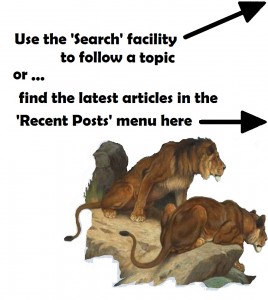 The Barbary Lion blog shows news & research on Panthera leo leo, the legendary ‘Barbary’ lion or ‘Atlas’ lion of North Africa. We already have about 50 short articles on this site.
The Barbary Lion blog shows news & research on Panthera leo leo, the legendary ‘Barbary’ lion or ‘Atlas’ lion of North Africa. We already have about 50 short articles on this site.
The Barbary lion is now extinct in the wild, but the story of its natural history provides lessons for lion conservation today.
We want to engage you in the research currently being undertaken by leading centres of excellence in genetics, extinction modelling, ecology and natural history. Several research groups, all involving international collaborations of research scientists, have conducted work over recent years which has better informed our understanding of big cat conservation, in particular lions. A number of zoos, including Rabat Zoo in Morocco, Port Lympne Wild Animal Park in the United Kingdom and a host of other zoos in Europe have been actively involved in lion research work, with an interest in lions of possible North African origin. This is matched by interest in a range of zoos and private collections elsewhere in the world, particularly in the United States.
If you are interested in this research effort we will aim to provide links to their publications through this site. To access the blog articles, click on the menu themes at the bottom of each page, which cover Conservation, Ecology, Extinction, Genetics, History and Zoo Research.
We look forward to your comments and contributions and hope that there are ways in which you can help us to learn more about the Barbary lion story and its relevance to big cat conservation.
Dr Simon Black |
Simon’s research includes the genetics, history and ecology of lions in North Africa. He also has other interests big cats, reptiles & birds, in collaborations with researchers across the globe. Simon developed the zoo studbook for lions originating from the King of Morocco’s collection. The studbook is used by the European Association of Zoos & Aquaria (EAZA) and currently supports the monitoring and transfer of lions for conservation breeding. Simon also works on leopard & tiger conservation and human-wildlife conflict in the Middle East and South Asia. Simon has trained hundreds of conservation professionals over recent years in effective conservation project management and leadership. |
